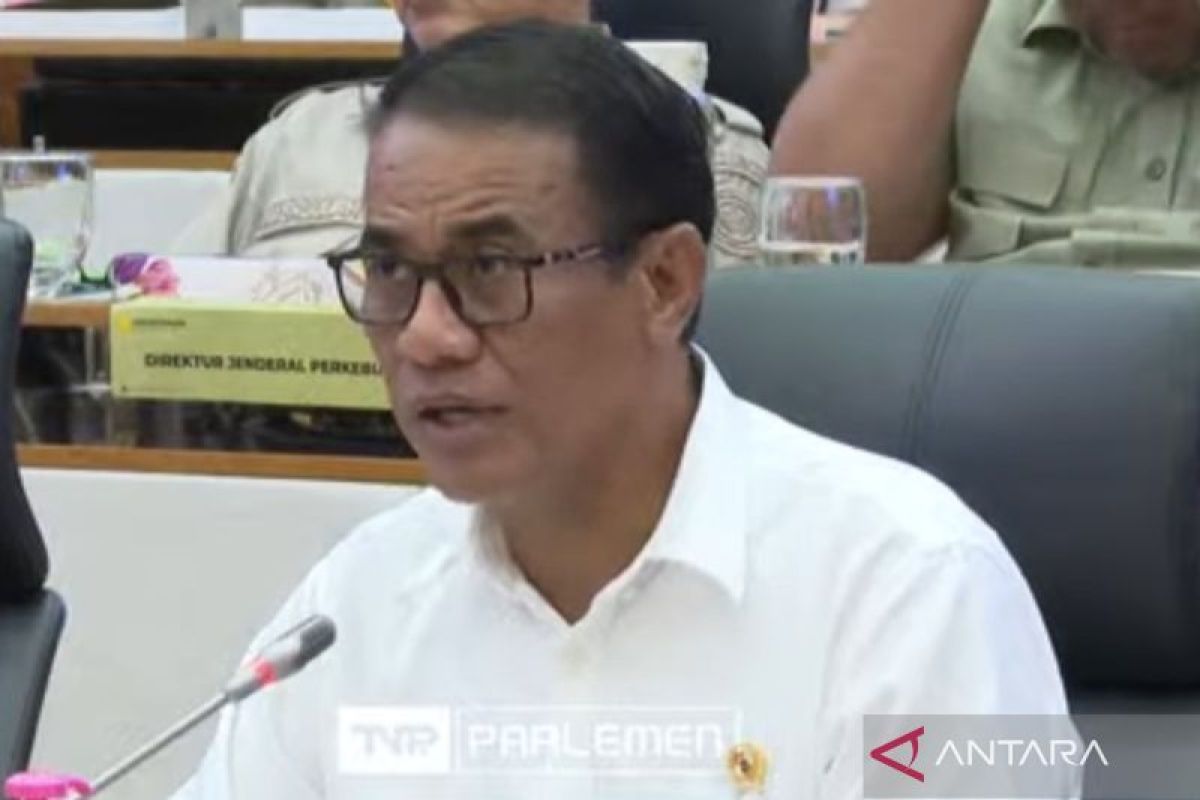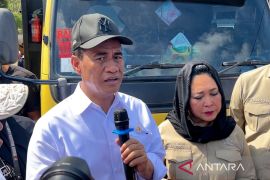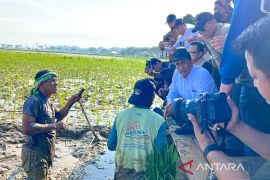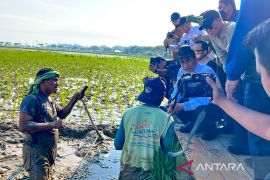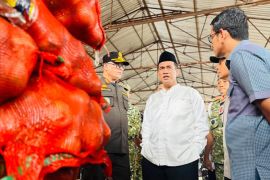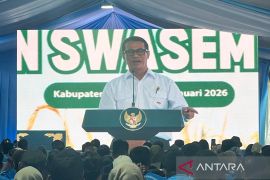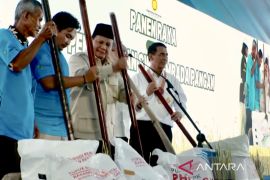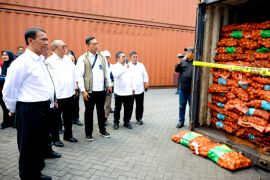The Agriculture Ministry and relevant stakeholders will continue to monitor and implement drought preparedness measures to reduce the impact of the dry season on national food production and maintain adequate food availability…Jakarta (ANTARA) - Indonesia's Agriculture Ministry is preparing anticipatory steps to deal with the prolonged dry season, which is projected to have a significant impact on the national agricultural sector.
Agriculture Minister Andi Amran Sulaiman said that the anticipatory steps have been prepared since October 2023 and include improving pump infrastructure and rehabilitating tertiary irrigation networks.
"We have prepared pump infrastructure for irrigating rain-fed rice fields, rehabilitating tertiary irrigation networks, optimizing the use of swamp land, as well as increasing the capacity and management of dam reservoirs," the minister informed on Thursday.
The Meteorology, Climatology, and Geophysics Agency (BMKG) has predicted that the 2024 dry season will be longer, extending from June to September, and reach its peak in August.
Therefore, Sulaiman considers it necessary to take prompt measures to anticipate changes in domestic food output, including due to El Nino 2023, whose impact has continued into this year.
The ministry is also evaluating the need for developing water-saving agricultural cultivation technology and has initiated the rainwater collecting movement to increase food security ahead of the dry season.
Data from Statistics Indonesia (BPS) has pegged the area planted with rice during the October 2023–April 2024 period at 6.55 million hectares, a decline of 3.83 million hectares or 36 percent compared to the average of 10.39 million hectares during the same period of 2015–2019.
Any shrinking of the planting area would affect the rice harvest area and thereby, reduce national rice production.
"The Agriculture Ministry and relevant stakeholders will continue to monitor and implement drought preparedness measures to reduce the impact of the dry season on national food production and maintain adequate food availability for the community," Sulaiman informed.
Currently, agricultural development is facing increasingly complex challenges due to the impact of extreme climate change such as El Nino, geopolitical conflicts, and global economic dynamics.
These phenomena have triggered export restrictions from food-producing countries, resulting in increased production costs and food prices, as well as the potential for a food crisis.
Meanwhile, in 2025, to support the achievement of the Golden Indonesia (IE) 2045 vision, the ministry will focus on four main programs: Availability, Access, and Consumption of Quality Food; Added Value and Industrial Competitiveness; Vocational Education and Training; and Management Support.
The agricultural commodity production targets for 2025 include 56.05 million tons for rice, 16.68 million tons for corn, 334 thousand tons for soybeans, 3.08 million tons for chilies, and 1.99 million tons for shallots.
Followed by 772 thousand tons of coffee, 641 thousand tons of cocoa, 36 million tons of sugar cane, 2.88 million tons of coconut, 405.44 thousand tons of beef/buffalo meat, and 4.0 million tons of chicken.
Related news: Govt distributing water pumps to provinces to anticipate drought
Related news: Jokowi visits Karanganyar's rice field water pumping station
Translator: Maria Cicilia G P, Resinta Sulistiyandari
Editor: Rahmad Nasution
Copyright © ANTARA 2024
